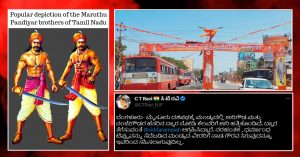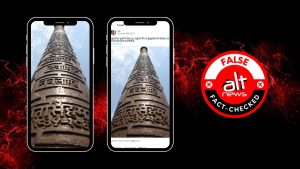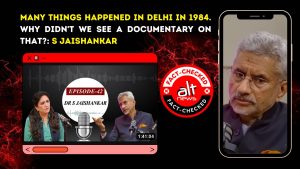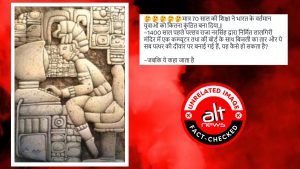A day after the Supreme Court upheld the findings of a special investigation team (SIT) that cleared Prime Minister Narendra Modi of alleged complicity in the 2002 Gujarat riots, the anti-terrorism unit of the Gujarat police detained activist Teesta Setalvad and a former IPS officer from their homes. This was based on the apex court’s direction to take action against those who made “false allegations” against the State of Gujarat regarding its handling of the 2002 communal riots.
Hours before activist Teesta Setalvad and former IPS officer RB Sreekumar were arrested, Home Minister Amit Shah gave an interview to ANI where he accused Setalvad of using her NGO to give baseless information to the police against the Bharatiya Janata Party.
Amidst all the chaos of the arrest and celebrations from one side of the political spectrum, various users on social media have claimed that Setalvad is the great-granddaughter of Chimanlal Harilal Setalvad, who was part of the Hunter Commission that gave a ‘clean chit’ to General Dyer on the Jallianwala Bagh massacre. It is being insinuated that Setalvad’s family has a history of “betraying the nation”.
Kanchan Gupta, Senior Adviser at the Ministry of Information & Broadcasting, was one of the many who tweeted the claim.
Fraud activist and ‘riot relief fund’ scamster Teesta Setalvad is great granddaughter of Chimanlal Harilal Setalvad who was member of the infamous ‘Hunter Commission’ on Jallianwala Bagh massacre.
Commission gave clean chit to General Dyer who ordered the firing on civilians.
n1 pic.twitter.com/6qGvAs3gDp— Kanchan Gupta 🇮🇳 (@KanchanGupta) June 26, 2022
The same claim was made by RSS mouthpiece Organiser Weekly, journalist Nishant Azad, Anupam K Singh, senior sub-editor of the pro-BJP portal OpIndia Hindi, and various others.
This claim is also widely circulating on Facebook.
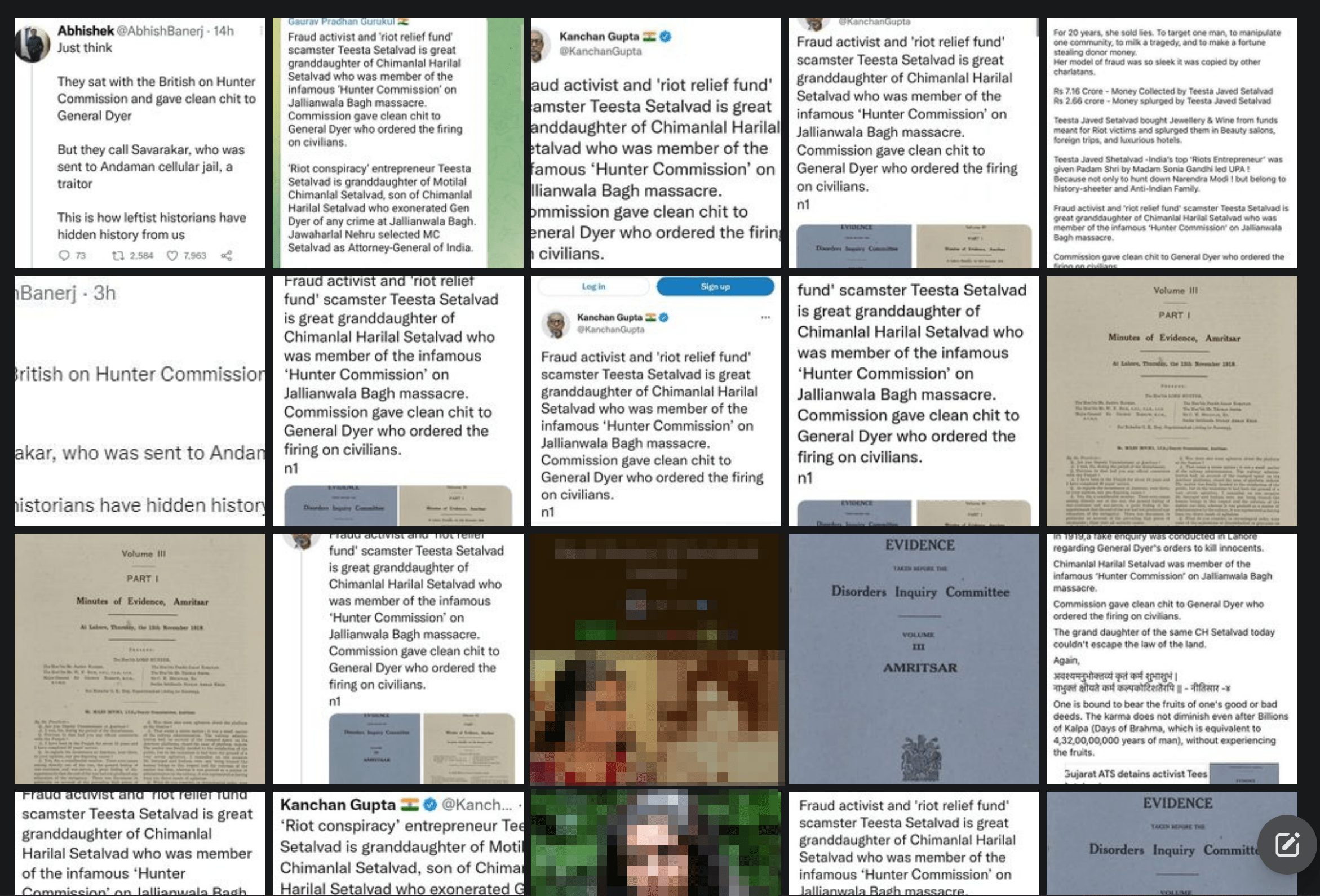
Fact-check
The aftermath of the Jallianwala Bagh Massacre left many people divided. General Dyer’s actions were widely criticised but at the same time, multiple people came in support of Dyer including Michael O’Dwyer, then Governor Punjab, who lauded Dyer’s efforts. This is thoroughly recorded in the book ‘British Reaction To The Amritsar Massacre 1919 – 1920‘ by Derek Sayer published in 1991. The pressure mounting up on Edwin Montagu, then secretary of state for India, led to the creation of the Hunter Commission.
Edwin Montagu, established an inquiry committee to look into the disturbing events in Bombay, Delhi, and Punjab and “the measures taken to cope with them”. On October 14, 1919, the Government of India announced the formation of the Disorders Inquiry Committee which later came to be known as the Hunter Commission after its chairman, Lord William Hunter.
The following people were the members of the Hunter Commission:
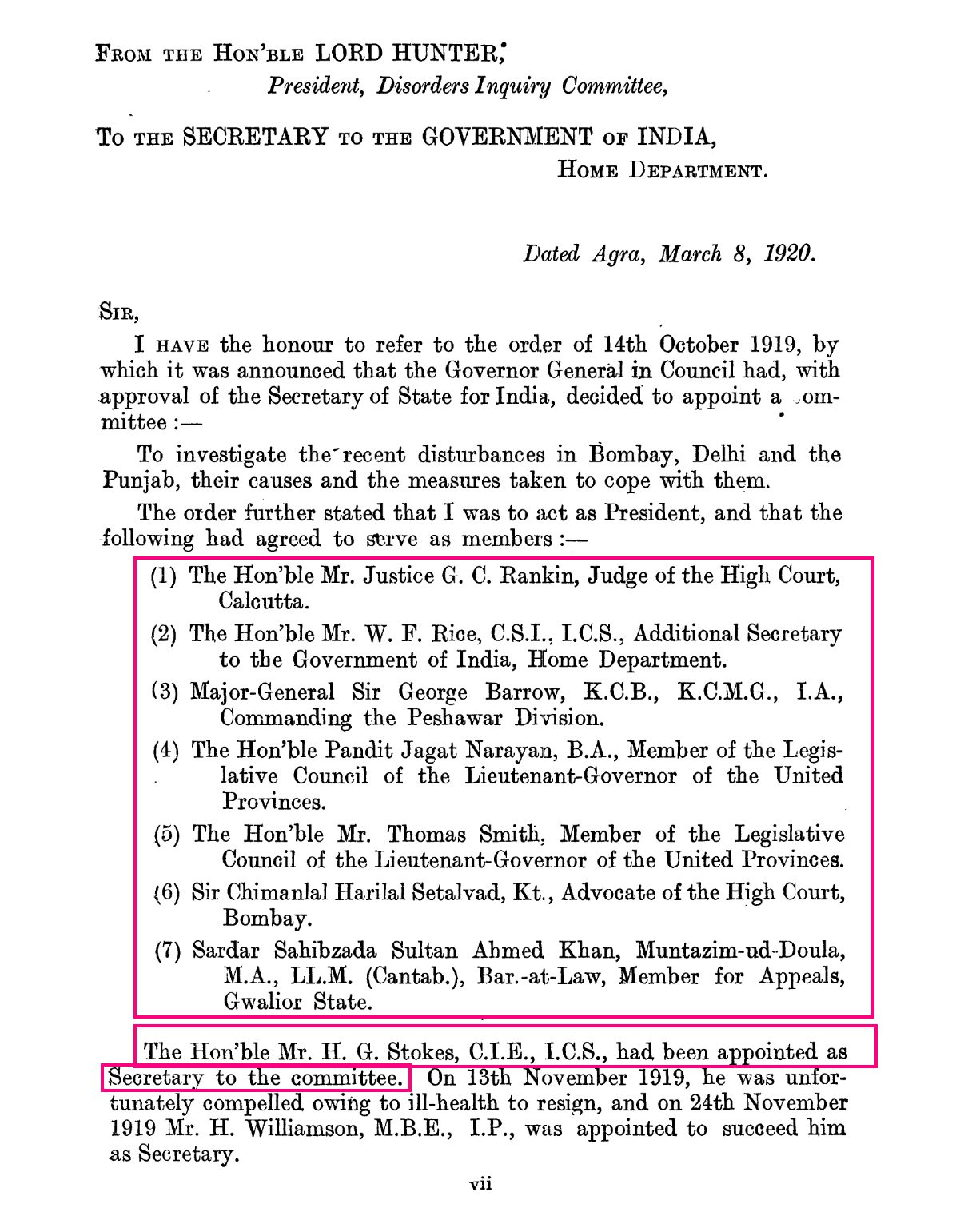 Sir Chimanlala Harilal Setalvad, the great-grandfather of Teesta Setalvad was indeed part of the Hunter Commission. He is the sixth person on the list mentioned above. The book ‘British Reaction To The Amritsar Massacre 1919 – 1920‘ also mentions that the Hunter Commission report was split into two based on racial lines. A “Majority Report” was submitted by the five white members of the committee and a “Minority Report” was submitted by the three Indian members. Sir Chimanlala Harilal Setalvad was one of the Indian members of the committee.
Sir Chimanlala Harilal Setalvad, the great-grandfather of Teesta Setalvad was indeed part of the Hunter Commission. He is the sixth person on the list mentioned above. The book ‘British Reaction To The Amritsar Massacre 1919 – 1920‘ also mentions that the Hunter Commission report was split into two based on racial lines. A “Majority Report” was submitted by the five white members of the committee and a “Minority Report” was submitted by the three Indian members. Sir Chimanlala Harilal Setalvad was one of the Indian members of the committee.
Alt News reached out to a professor who spoke on the condition of anonymity. The professor confirmed to us the same as noted in the book. They said, “The Hunter Committee had five white members and three Indian members. There were two reports submitted by the members – the Majority Report and the Minority Report. The Majority Report was lenient on General Dyer, while the Minority Report gave dissenting notes against acquitting General Dyer and Michael O’Dwyer, then Governor Punjab.”
The two reports can be read here and here. Below we have added a gallery highlighting the names of the authors of the reports.
We recommend our readers read Chapter IV of the Minority Report titled – “The Firing at the Jallianwala Bagh”. In this chapter, the minority members condemn the firing and call it as an act of “frightfulness” comparable to German atrocities in France and Belgium, something “inhuman and un-British”. The committee also asked General Dyer if the passage to Jallianwala Bagh was sufficient to allow armoured cars to go in would he have opened fire with the machine guns? To which Dyer replied, “I think, probably, yes.” In fact, Dyer constantly referred to the people present at the scene as “targets”.
Below we have added some of the excerpts from this report.
The Minority Report also criticises the Lieutenant Governor of Punjab, Michael O’Dwyer, concluding that his “point of view was and still is the same as that of General Dyer”.
Moreover, even in the book ‘Jallianwala Bagh: A Groundbreaking History of the 1919 Massacre’ by V.N. Datta, it is clearly mentioned that the Minority Report had criticized Dyer’s action more strongly than its counterpart. It is important to note that V.N. Datta has extensively worked on the Jallianwala Bagh, exploring the primary sources and oral testimonies of the survivors and victims of the massacre.
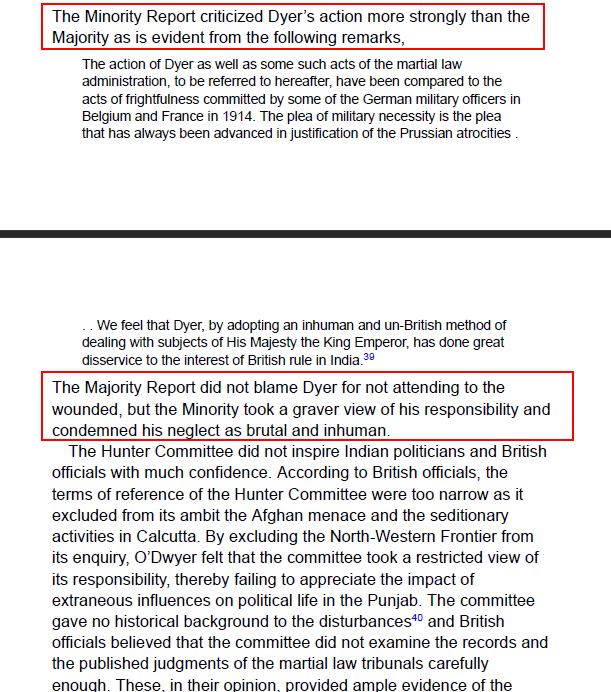
In the book, ‘The Patient Assassin: A True Tale of Massacre, Revenge and the Raj’, author Anita Anand explains that the Hunter Commission agreed that General Dyer had overstepped the bounds of his authority. But the Indians on the panel refused to pen their name in the final report and denounced it. The Indian panel issued a separate Minority Report. This part of the book was also pointed out by columnist Nilanjana Roy on Twitter.
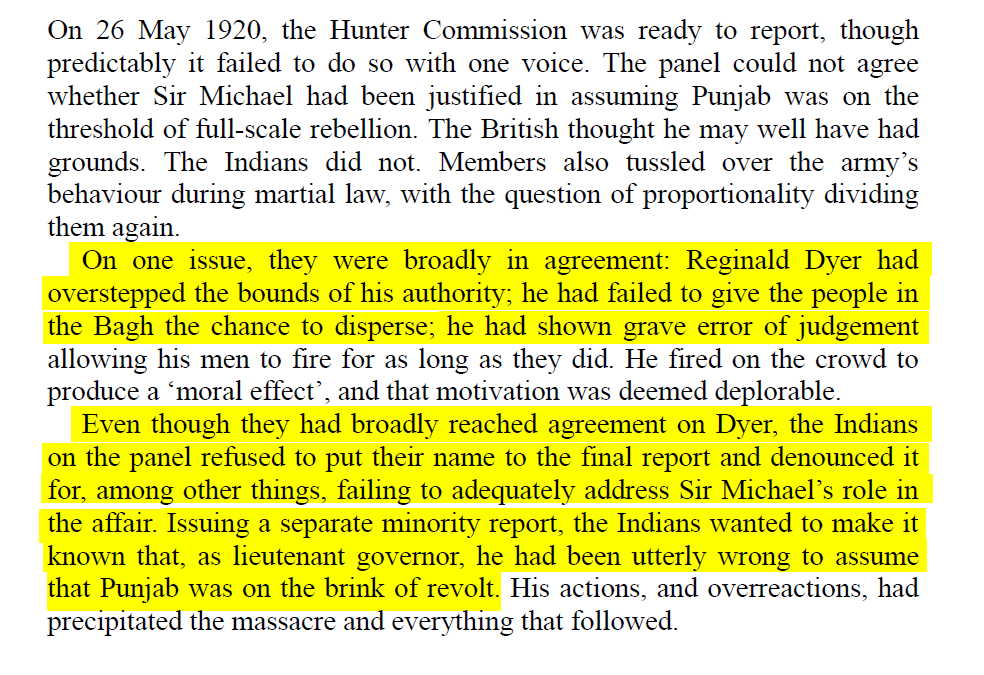
The book also explains what happened to Dyer after the Hunter Commission report. British society continued to remain divided on the issue, Dyer was forced to resign from the Army and his recommendation for the CBE (Commander of the Most Excellent Order of the British Empire) was withdrawn.
To sum it up, General Dyer may not have received a punishment that can bring justice to those who perished, however, to say that the Indian panel of the Hunter Commission was in agreement to give Dyer ‘clean chit’ is unjustified. From the questions asked to Dyer by the Indian panel to the historical accounts noted, all of them point out that the Indian panel was strict on Dyer as well as on Michael O’Dwyer, the Lieutenant Governor of Punjab.
Independent journalism that speaks truth to power and is free of corporate and political control is possible only when people start contributing towards the same. Please consider donating towards this endeavour to fight fake news and misinformation.

